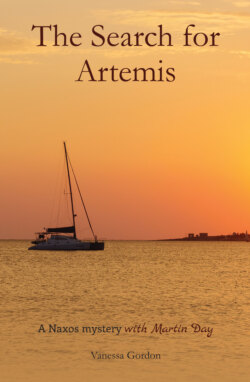Читать книгу The Search for Artemis - Vanessa Gordon - Страница 9
На сайте Литреса книга снята с продажи.
ОглавлениеA NOTE ABOUT GREEK WORDS
Readers without a knowledge of Greek might like to know about one or two things that they will notice in the book.
‘Kyrie’ and ‘Kyria’ are forms of address like monsieur and madame.
‘Mou’ means ‘my’, often used after a name as a term of affection.
‘Agapi mou’ means ‘my dear’.
‘Pappou’ means Grandpa.
‘Kali Orexi’ means ‘Bon Appétit!’
‘Kalos Irthatay!’ means ‘Welcome!’
‘Stin yia sas!’ means “Good health!’, a toast.
‘Oriste!’ is a common way to answer the phone.
Zas is Greek for Zeus
Greek names sometimes have changed endings in the vocative, which is when the person is directly addressed. This is why you will see Thanasis become Thanasi, Vasilios become Vasili, and other examples, when the characters are being spoken to directly.
Greek place names can be found in different spellings in the Latin alphabet; spellings most likely to help with pronunciation are used in this book.
The main town of Naxos is called Chora (or Naxos). You pronounce the ch in Chora as in the Scottish ‘loch’. Similarly, Halki (also written Chalki) begins with that sound.
Peppino’s “Mingia!”
Translations differ, but this is a common exclamation in Sicily and probably should be given in asterisks.
